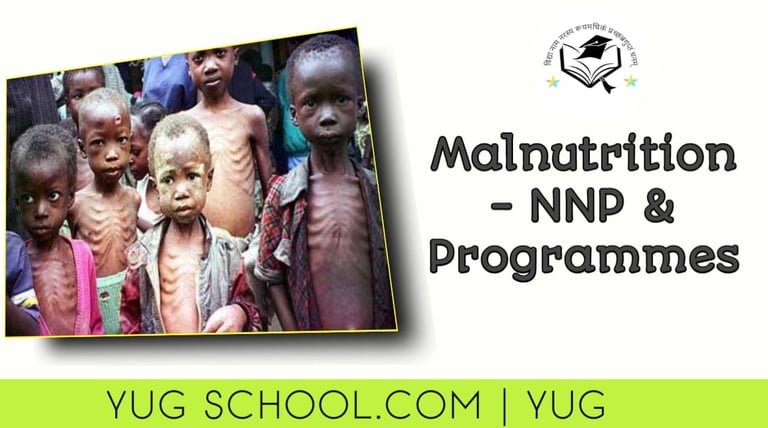Effect of Malnutrition on National Development
The causes and effects of malnutrition on vulnerable sections of society are far-reaching and devastating.
HOME SCIENCE


Malnutrition has a severe and far-reaching negative impact on national development, affecting individuals, communities, and the entire country. Here's a breakdown of the key consequences:
Health:
Increased child mortality: Malnutrition is a major contributor to child deaths, particularly in low- and middle-income countries.
Weakened immune system: Malnutrition makes people more susceptible to infections and diseases, further straining healthcare systems.
Stunted growth and development: Children suffering from malnutrition often experience stunted physical and cognitive development, limiting their future potential.
Economy:
Reduced productivity: Malnourished individuals have lower energy levels and are more likely to miss work due to illness, hindering economic output.
Increased healthcare costs: The burden of treating malnutrition and its associated illnesses places a significant strain on national budgets.
Lost future earnings: Stunted children often have lower educational attainment and future earning potential, impacting the overall national economy.
Education:
Lower cognitive development: Malnutrition can impair learning and memory, leading to poorer academic performance and reduced educational attainment.
Decreased school attendance: Children suffering from illness due to malnutrition are more likely to miss school, hindering their education.
Cycle of poverty:
Malnutrition disproportionately affects the poorest populations, trapping them in a cycle of poverty. Undernourished children are more likely to become adults with lower earning potential, perpetuating the problem for future generations.
Addressing malnutrition is crucial for achieving sustainable national development. Here are some potential solutions:
Investing in food security: Strengthening agricultural production, improving access to nutritious foods, and reducing food waste are essential.
Early childhood nutrition programs: Providing adequate nutrition to pregnant women and young children is critical for preventing malnutrition.
Education and awareness campaigns: Promoting healthy eating habits and educating communities about the importance of proper nutrition.
By tackling malnutrition, countries can invest in their future workforce, improve public health outcomes, and break the cycle of poverty.
